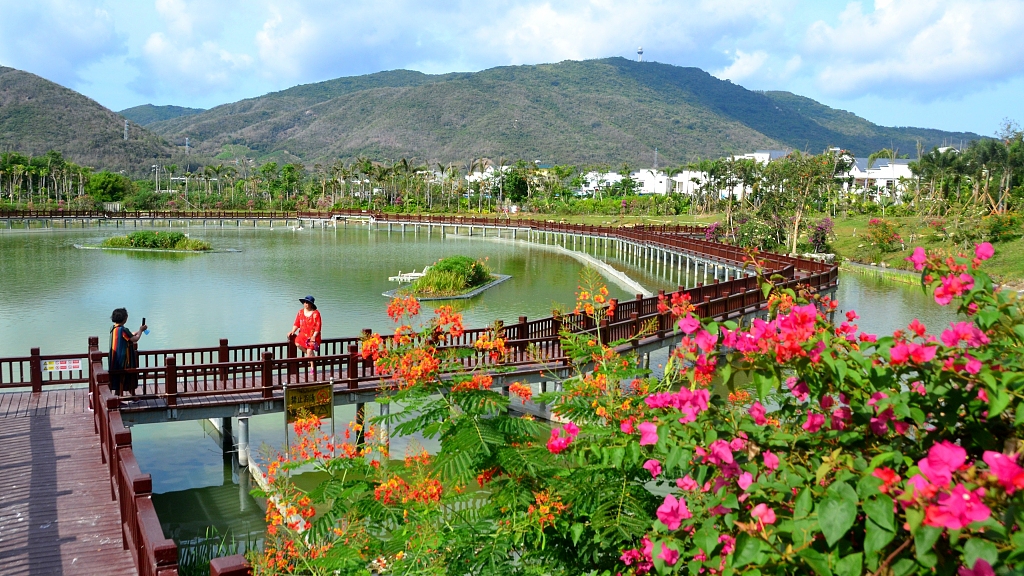China will list more key villages across the country to promote the rural revitalization as well as rejuvenation of the tourism sector, according to a circular jointly issued by the Ministry of Culture and Tourism and the National Development and Reform Commission on Wednesday.
It will be the second batch of key rural tourism spots, while a total of 320 villages were initially designated as national-level key spots last year, which have set a good example showing the role that tourism plays in invigorating rural areas, the announcement said.
The villages to be listed will have to meet certain standards: they should be rich in culture and tourism resources, boast sound protection of rural culture, and have accommodation options that can meet tourists' needs, according to the circular.
Others include having a mature and high-quality system of tourist products, complete infrastructure and public services, and the capacity to help boost the local economy and employment with tourism.

Visitors take pictures at Bohou Village, Yalong Bay National Resort in Sanya, south China's Hainan Province, May 12, 2020. /VCG
Visitors take pictures at Bohou Village, Yalong Bay National Resort in Sanya, south China's Hainan Province, May 12, 2020. /VCG
In recent years, rural tourism has gained much popularity. Especially after the COVID-19 outbreak was brought under control in the country and various sectors started resumption, an increasing number of Chinese travelers have opted for rural destinations to get closer to nature and experience a slow-paced lifestyle instead of urban sightseeing tours.
Also, the countryside home-stays have become a big draw for visitors. Data from tujia.com, a leading homestay booking platform in China, revealed that rural homestay reservations increased by 6 percent during the past May Day holiday.
"Rural homestay provides a perfect chance for tourists to learn about the local customs," said a manager from the platform, adding that China has almost resumed all weekend trips, and the homestay market is likely to see accelerated recovery in the rest of the year.
Luo Shugang, Minister of Culture and Tourism, said that the development of countryside home-stays should combine with poverty alleviation work, and farmers and financially-struck households should be encouraged and guided to provide such services as a way of rising from poverty.
Statistics from the Ministry of Agriculture and Rural Affairs showed that over 60 percent of the leisure tourism sector in China's rural areas resumed business in April.
Last year, rural areas in China received 3.2 billion tourists in total, contributing over 850 billion yuan (119.4 billion U.S. dollars) to the tourism sector.
(With input from agencies)
(Cover: Visitors at Wujiatai Village in Xuan'en County, Enshi Tujia, and Miao Autonomous Prefecture, central China's Hubei Province, April 6, 2020. /VCG)